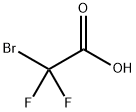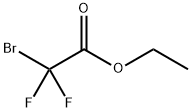2-(2-Aminoethoxy)ethanol
Synonym(s):2-(2-Aminoethoxy)ethanol;Diethylene glycolamine;Ethylene glycol mono(2-aminoethyl) ether
- CAS NO.:929-06-6
- Empirical Formula: C4H11NO2
- Molecular Weight: 105.14
- MDL number: MFCD00008181
- EINECS: 213-195-4
- SAFETY DATA SHEET (SDS)
- Update Date: 2024-12-18 14:15:30

What is 2-(2-Aminoethoxy)ethanol?
Description
Amino-PEG2-alcohol is a short PEG linker containing an amino group with a hydroxyl group. The amino (NH2) group is reactive with activated NHS esters, carbonyls (ketone, aldehyde) etc.
Chemical properties
colourless to faintly yellow liquid
Chemical properties
2-(2-Aminoethoxy)ethanol is a combustible, colorless to light yellow, thick liquid. Fishy odor
The Uses of 2-(2-Aminoethoxy)ethanol
2-(2-Aminoethoxy)ethanol is used mainly in stripper solutions for applications in electronics, in gas treating to remove carbon dioxide and hydrogen sulfide, and in coolants/lubricants for metal working applications. Other applications of aminoethoxyethanol (ADG) include, inter alia, crop protection products, surfactants and colorants. It is also used as a selective solvent for recovery of aromatics from refinery streams and in preparation of foam stabilizers, wetting and emulsifying agents.
The Uses of 2-(2-Aminoethoxy)ethanol
2-(2-Aminoethoxy)ethanol is commonly used as a spacer/linker in the synthesis of bioconjugate materials for applications such as drug delivery and protein labeling. It is also employed as a receptor chain in the preparation of carboxamidoquinoline based water-soluble, ratiometric fluorescent zinc sensor.
General Description
A colorless liquid with a faint fishlike odor. Combustible but difficult to ignite. Corrosive to tissue. Combustion produces toxic oxides of nitrogen.
Air & Water Reactions
Water soluble.
Reactivity Profile
2-(2-AMINOETHOXY) ETHANOL is an aminoalcohol. Neutralizes acids in exothermic reactions to form salts plus water. May be incompatible with isocyanates, halogenated organics, peroxides, phenols (acidic), epoxides, anhydrides, and acid halides. Flammable gaseous hydrogen is generated in combination with strong reducing agents, such as hydrides.
Health Hazard
TOXIC; inhalation, ingestion or skin contact with material may cause severe injury or death. Contact with molten substance may cause severe burns to skin and eyes. Avoid any skin contact. Effects of contact or inhalation may be delayed. Fire may produce irritating, corrosive and/or toxic gases. Runoff from fire control or dilution water may be corrosive and/or toxic and cause pollution.
Fire Hazard
Non-combustible, substance itself does not burn but may decompose upon heating to produce corrosive and/or toxic fumes. Some are oxidizers and may ignite combustibles (wood, paper, oil, clothing, etc.). Contact with metals may evolve flammable hydrogen gas. Containers may explode when heated.
Flammability and Explosibility
Not classified
Safety Profile
Moderately toxic by skin contact. Mildly toxic by ingestion. Severe eye and skin irritant. Corrosive and a powerful irritant. When heated to decomposition it emits toxic fumes of NOx,.
Potential Exposure
Used to remove gases from natural gas; in coatings in plastics; textiles, fibers, and metals; and in making other chemicals.
Shipping
UN3055 2-(2-Aminoethoxy) ethanol, Hazard class: 8; Labels: 8-Corrosive material
Incompatibilities
Reacts with oxidizers, strong acids; and chemically active metals, such as potassium, sodium, magnesium and zinc.
Properties of 2-(2-Aminoethoxy)ethanol
| Melting point: | -12.5 °C |
| Boiling point: | 218-224 °C(lit.) |
| Density | 1.05 |
| vapor pressure | <0.1 hPa (20 °C) |
| refractive index | n |
| Flash point: | >230 °F |
| storage temp. | Store below +30°C. |
| solubility | Chloroform (Sparingly), DMSO (Sparingly) |
| pka | 14.37±0.10(Predicted) |
| form | Crystalline Powder and or Chunks |
| color | Yellow |
| PH | 10.2 (10g/l, H2O, 20℃) |
| Odor | slightly viscous liq., amine odor |
| explosive limit | 2.0-15.5%(V) |
| Water Solubility | miscible |
| Sensitive | Air Sensitive |
| BRN | 906728 |
| Stability: | Stable. Incompatible with acids, strong oxidizing agents. Reacts with carbon dioxide. |
| CAS DataBase Reference | 929-06-6(CAS DataBase Reference) |
| NIST Chemistry Reference | Ethanol, 2-(2-aminoethoxy)-(929-06-6) |
| EPA Substance Registry System | 2-(2-Aminoethoxy)ethanol (929-06-6) |
Safety information for 2-(2-Aminoethoxy)ethanol
| Signal word | Danger |
| Pictogram(s) |
 Corrosion Corrosives GHS05 |
| GHS Hazard Statements |
H314:Skin corrosion/irritation |
| Precautionary Statement Codes |
P280:Wear protective gloves/protective clothing/eye protection/face protection. P363:Wash contaminated clothing before reuse. P301+P330+P331:IF SWALLOWED: Rinse mouth. Do NOT induce vomiting. P303+P361+P353:IF ON SKIN (or hair): Remove/Take off Immediately all contaminated clothing. Rinse SKIN with water/shower. P305+P351+P338:IF IN EYES: Rinse cautiously with water for several minutes. Remove contact lenses, if present and easy to do. Continuerinsing. |
Computed Descriptors for 2-(2-Aminoethoxy)ethanol
| InChIKey | GIAFURWZWWWBQT-UHFFFAOYSA-N |
New Products
(S)-3-Aminobutanenitrile hydrochloride 4-Methylphenylacetic acid N-Boc-D-alaninol N-BOC-D/L-ALANINOL Tert-butyl bis(2-chloroethyl)carbamate 3-Morpholino-1-(4-nitrophenyl)-5,6-dihydropyridin- 2(1H)-one Furan-2,5-Dicarboxylic Acid Tropic acid 1-Bromo-3,5-Di-Tert-Butylbenzene S-2-CHLORO PROPIONIC ACID ETHYL ISOCYANOACETATE 2-Bromo-1,3-Bis(Dimethylamino)Trimethinium Hexafluorophosphate 4-IODO BENZOIC ACID 3-NITRO-2-METHYL ANILINE 1-(2,4-DICHLOROPHENYL) ETHANAMINE (2-Hydroxyphenyl)acetonitrile 4-Bromopyrazole 2-(Cyanocyclohexyl)acetic acid 4-methoxy-3,5-dinitropyridine 1-(4-(aminomethyl)benzyl)urea hydrochloride 2-aminopropyl benzoate hydrochloride diethyl 2-(2-((tertbutoxycarbonyl)amino) ethyl)malonate tert-butyl 4- (ureidomethyl)benzylcarbamate Ethyl-2-chloro((4-methoxyphenyl)hydrazono)acetateRelated products of tetrahydrofuran








You may like
-
 2-(2-Aminoethoxy)ethanol CAS 929-06-6View Details
2-(2-Aminoethoxy)ethanol CAS 929-06-6View Details
929-06-6 -
 2-(2-Aminoethoxy)ethanol CAS 929-06-6View Details
2-(2-Aminoethoxy)ethanol CAS 929-06-6View Details
929-06-6 -
 Diglycolamine 2amino Ethoxyethanol CAS 929-06-6View Details
Diglycolamine 2amino Ethoxyethanol CAS 929-06-6View Details
929-06-6 -
 2-(2-Aminoethoxy)ethanol CAS 929-06-6View Details
2-(2-Aminoethoxy)ethanol CAS 929-06-6View Details
929-06-6 -
 2-(2-Aminoethoxy)ethanol CAS 929-06-6View Details
2-(2-Aminoethoxy)ethanol CAS 929-06-6View Details
929-06-6 -
 1975-50-4 98%View Details
1975-50-4 98%View Details
1975-50-4 -
 14714-50-2 (2-Hydroxyphenyl)acetonitrile 98+View Details
14714-50-2 (2-Hydroxyphenyl)acetonitrile 98+View Details
14714-50-2 -
 118753-70-1 98+View Details
118753-70-1 98+View Details
118753-70-1